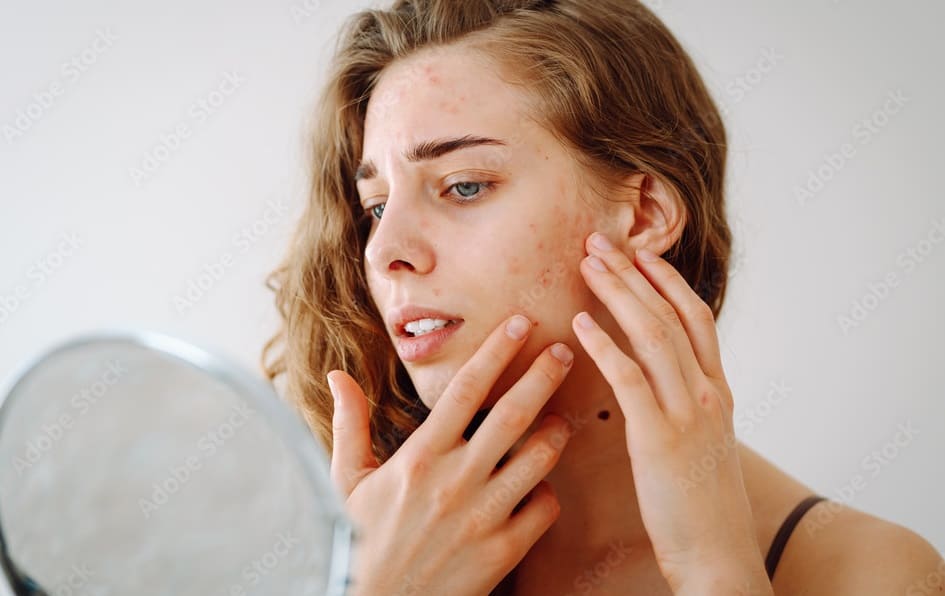We all know that stress can leave us feeling frazzled, but did you know it can also impact your skin in some pretty significant ways? From breakouts to premature aging, stress isn’t just a mental burden—it’s a physical one, too. Let’s take a closer look at how stress can affect your skin and what you can do to counteract these effects.
6 Hidden Impact of Stress on Your Skin
1) Increased Oil Production and Acne
Ever notice how stress seems to trigger a breakout just when you least need it? That’s because stress ramps up your body’s production of cortisol, a hormone that stimulates your skin’s oil glands. More oil means more clogged pores, which can lead to acne. If you’re finding yourself with unwanted zits, especially around your chin or jawline, stress might be the culprit.
2) Premature Aging
Stress can be a major player in aging your skin faster than you’d like. When you’re stressed, your body breaks down collagen, the protein that keeps your skin looking youthful and plump. This breakdown can lead to more wrinkles and fine lines. Plus, stress often means poor sleep, which deprives your skin of the chance to repair itself overnight.
3) Dryness and Sensitivity
If your skin feels drier and more sensitive when you’re stressed, you’re not imagining it. Stress can weaken your skin’s natural barrier, causing it to lose moisture. This can make conditions like eczema or psoriasis flare up, leaving your skin feeling irritated and flaky.
4) Stress-Induced Skin Conditions
For those with conditions like rosacea or psoriasis, stress can be a major trigger. Stress can make these conditions worse by increasing inflammation in the body. If you’re seeing more redness or irritation than usual, stress might be playing a role.
5) Impaired Healing
Stress can also slow down how quickly your skin heals. When you’re stressed, inflammation increases, which can delay the healing of wounds and blemishes. Plus, a stressed-out body is more prone to infections, which can further slow down recovery.
6) Unhealthy Skin Habits
Stress often leads to less-than-ideal skin habits. Maybe you skip your skincare routine or find yourself reaching for junk food. These habits can take a toll on your skin. Additionally, stress can lead to habits like nail-biting or touching your face, which can transfer bacteria to your skin and worsen issues.
Tips for Managing Stress and Improving Skin
- Find Stress-Relief Strategies: Whether it’s yoga, meditation, or just a walk in the park, finding ways to unwind can help lower your stress levels. Lower stress means less cortisol and, in turn, healthier skin.
- Live a Balanced Life: Eating a healthy diet rich in fruits, veggies, and omega-3s, staying hydrated, and exercising regularly can all help your body manage stress better and keep your skin glowing.
- Stick to a Skincare Routine: Use gentle, hydrating products and try to keep your skincare routine consistent. Taking good care of your skin can help mitigate the effects of stress.
- Talk to a Professional: If stress is overwhelming you, don’t hesitate to reach out for help. Speaking with a mental health professional can help you manage stress more effectively and, in turn, improve your skin.
Conclusion:
Stress and skin health are closely interconnected. By understanding how stress affects your skin and taking proactive steps to manage it, you can improve both your mental and physical well-being. Remember, taking care of your skin starts from within, and managing stress is a key part of that process.
Also Read:
